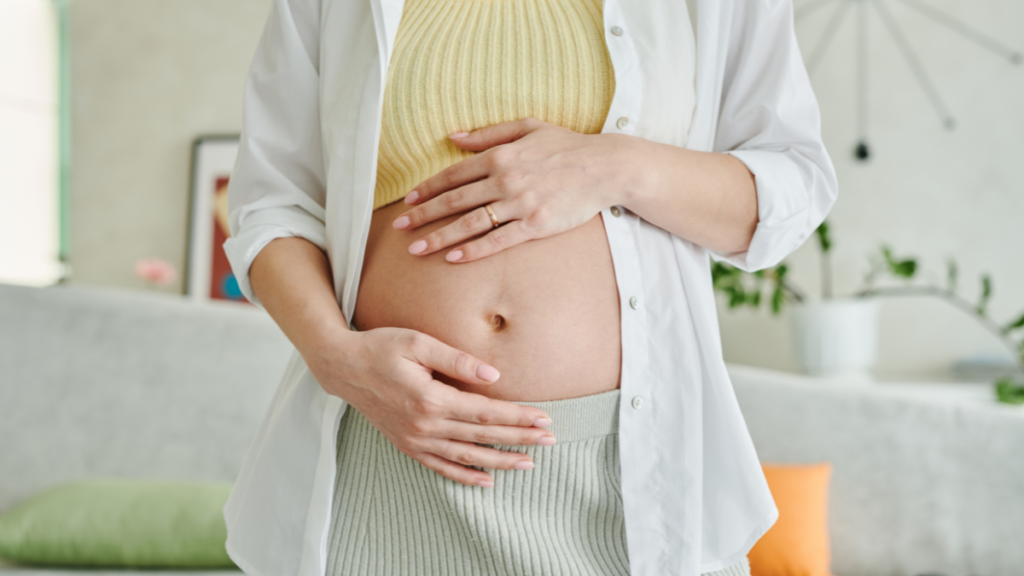
By four weeks pregnant, you’ve reached the implantation stage of your pregnancy and the embryo is beginning to develop. At this point, pregnancy symptoms may start to become more pronounced. Many women will also be able to confirm their pregnancy with an early home pregnancy test.
One month in and your baby, although still not quite a fetus, has made its way to its new home for the next 9 months. At this stage, you may start to notice a few more early signs and symptoms of pregnancy. These may include the following:
Nausea and Morning Sickness
As you near the end of your first month of pregnancy, you may start to suffer from morning sickness. Many women feel most nauseous and experience vomiting around 9 weeks pregnant, but morning sickness can kick in early. It is very common throughout your first trimester; however, the symptoms should start to wear off in your second trimester.
Tiredness
Feeling tired during pregnancy is a given! Your body is going through huge changes, both physically and hormonally. At four weeks the embryo is starting to develop, and your body is preparing to grow another human, it’s likely you may feel a little worn out.
Bloating
As we’ve already mentioned, you will experience a lot of changes in your hormone levels during your pregnancy. One side effect of increased levels of progesterone is bloating. As with regular and menstrual bloating, there are a number of solutions to try and reduce the effects. For example, drinking peppermint teas and avoiding any carbonated drinks.
Mild Cramping
You may also suffer from some mild abdominal pain at four weeks. This can often be a result of bloating. Some women may also experience cramping during the implantation process – as the baby implants on the wall of your uterus. However, if the cramps are persistent and severe, you should consult your doctor.
Some women will experience a small about of bleeding or ‘spotting’ at around the four-week mark. This is also known as implantation bleeding and usually occurs approximately six to twelve days after successful conception. It is often mistaken for a period but can actually be an early sign that you are pregnant.
You may also be more likely to bleed during sex while you are pregnant. This is due to the hormone changes increasing the blood flow to the cervix (which may also increase your sex drive) meaning you’re more likely to irritate the area.
Implantation bleeding, or spotting, is usually light and does not require treatment. However, if you are bleeding heavily during the early stages of your pregnancy you should consult your doctor. It may be a sign of a miscarriage or an ectopic pregnancy.
By now your baby will have completed the journey from your fallopian tube to the uterus, where it will develop and grow for the next eight months. This is where some women may experience cramping or implantation bleeding, you could be feeling your baby settle into its new home.
Once successfully implanted in the lining of your womb, the blastocyst – the ball of cells that will form your baby – will start to split in two. One half will become the embryo, the other half goes on to form the placenta.
At one month, the placenta is not yet fully formed, and so the embryo is attached to a tiny yolk sac which provides the necessary nutrients for healthy development. Once fully formed, the placenta will be your baby’s life-support in the womb over the following eight months.
At this point, the amniotic sac will also form, and the embryo is separated into three layers of cells. These go on to from different parts of your baby’s body. The endoderm makes up the inner layer: the digestive system, liver and lungs. The middle layer – the mesoderm – grows into the kidneys, heart, bones, muscles and reproductive organs. The final, outer layer is the ectoderm. This forms the baby’s hair, skin and eyes.
Although a lot of key developmental changes are happening at this point, your baby is still not yet a fetus and is no bigger than a poppy seed.
Head back and read all about your body and baby at 5 weeks pregnant.

© 2023 All rights reserved Baby & Toddler - part of parent promotions